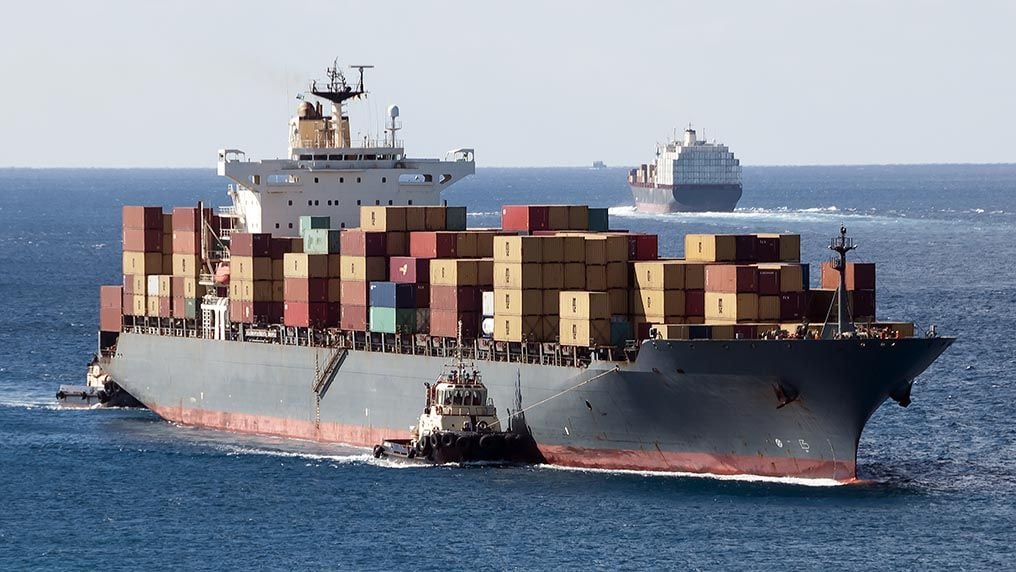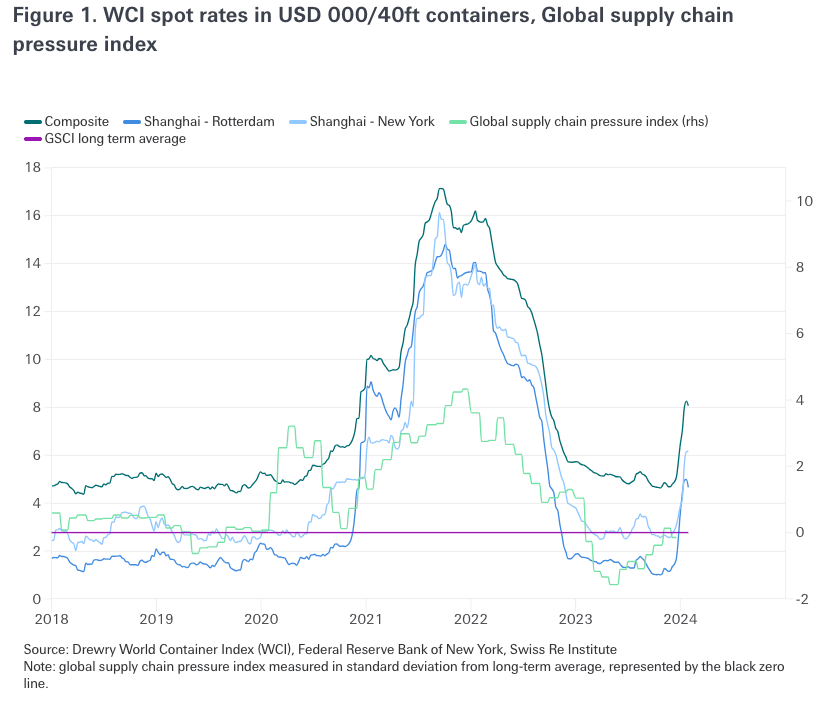Rising Shipping Costs: A Looming Threat to Global Inflation Says SwissRe
- Written by: Sam Coventry

Image © Adobe Stock
In a recent analysis by Swiss Re Institute, shipping disruptions have been identified as a significant factor contributing to inflationary pressures worldwide.
The paper, titled "Navigating shipping disruptions," penned by economist Arnaud Vanolli, delves deep into the repercussions of recent logistical challenges on the global economy.
"Attacks on ships in the Red Sea and drought in the Panama Canal area have more than quadrupled shipping prices since late 2023," the paper states, pinpointing the direct catalysts behind the escalating costs of transportation.
Swiss Re is one of the world's leading providers of reinsurance, insurance and other forms of insurance-based risk transfer.
Such an increase in shipping rates could serve as a harbinger of inflationary trends that could ripple through the economy.
The analysis further elucidates the potential macroeconomic consequences: "The disruption poses risks to the macroeconomic outlook, especially if it persists into the peak shipping season in the second half of the year."
This warning underscores the fragility of global supply chains and their susceptibility to external shocks, which, in turn, could stoke inflationary fires.
A particular concern highlighted in the document is the vulnerability of food and energy prices to shipping disruptions.
"Food prices are also vulnerable since 14% of cereals and 4% of soybeans pass through the Suez Canal. About a third of Suez Canal traffic is tankers (12% of global seaborne crude oil transport and 8% of liquefied natural gas), posing risks to energy prices."
The findings bring to light the critical nature of shipping lanes such as the Suez Canal in the global trade of essential commodities, whose obstruction could lead to a spike in prices at the consumer level.
Looking ahead, the paper casts a shadow on the future, suggesting that the situation could lead to a more sustained inflationary trend. "The longer-lasting the Red Sea attacks, the more likely that shipping spot rate increases feed through to contract rates and then to core inflation with a lag," it forecasts.
This observation indicates a potential delayed economic reaction, where the initial impact on shipping costs gradually permeates through core inflation metrics.
Moreover, the document does not shy away from discussing the insurance industry's response to these challenges. "Higher prices are manageable so far, but insured losses may rise if disruptions last longer or intensify. Stickier claims inflation is a risk too if core goods inflation starts to tick up again."




